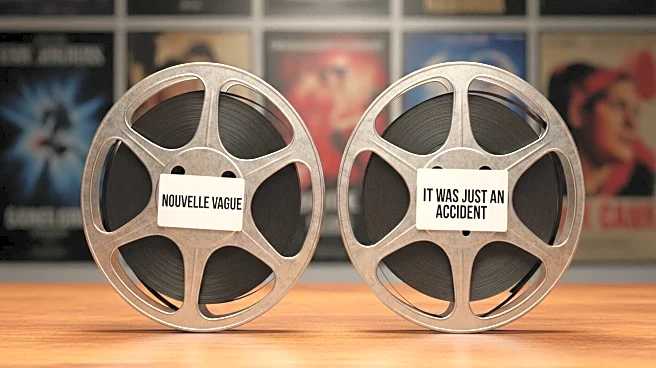What is the story about?
What's Happening?
France is currently facing a unique challenge in selecting its official entry for the international feature Oscar category. The decision is between two films: 'Nouvelle Vague,' directed by American filmmaker Richard Linklater, and 'It Was Just an Accident,' a French co-production by Iranian director Jafar Panahi. 'Nouvelle Vague' is a French-language film that pays homage to the French New Wave, while 'It Was Just an Accident' is a mix of Farsi and Arabic, shot in exile by Panahi. Both films qualify under the Academy's guidelines, but each presents unprecedented choices for France. 'Nouvelle Vague' would be the first film by an American director selected by France, while 'It Was Just an Accident' represents artistic resistance and global free expression.
Why It's Important?
The decision holds significant implications for France's cinematic identity and its stance on international collaboration. Selecting 'Nouvelle Vague' could be seen as a bold move, embracing a film by an American director, which might challenge traditional national purist views. On the other hand, choosing 'It Was Just an Accident' would position France as a champion of artistic freedom, supporting a filmmaker who has faced governmental restrictions. The choice could influence France's reputation in the global film industry and impact its chances at the Oscars, as both films have strong festival performances and critical support.
What's Next?
France's final decision is expected in early September, and it will likely be influenced by political, cultural, and cinematic considerations. The choice could reverberate beyond the Oscar shortlist, affecting perceptions of France's film industry and its openness to international influences. Both films are eyeing broader Oscar prospects, with potential nominations in various categories, which could further elevate France's presence in the awards season.
Beyond the Headlines
The selection process highlights deeper issues of national identity and the evolving nature of international cinema. It raises questions about the balance between cultural preservation and global collaboration, as well as the role of film as a medium for political expression. The decision could set a precedent for future submissions, influencing how countries approach their Oscar entries in an increasingly interconnected world.














